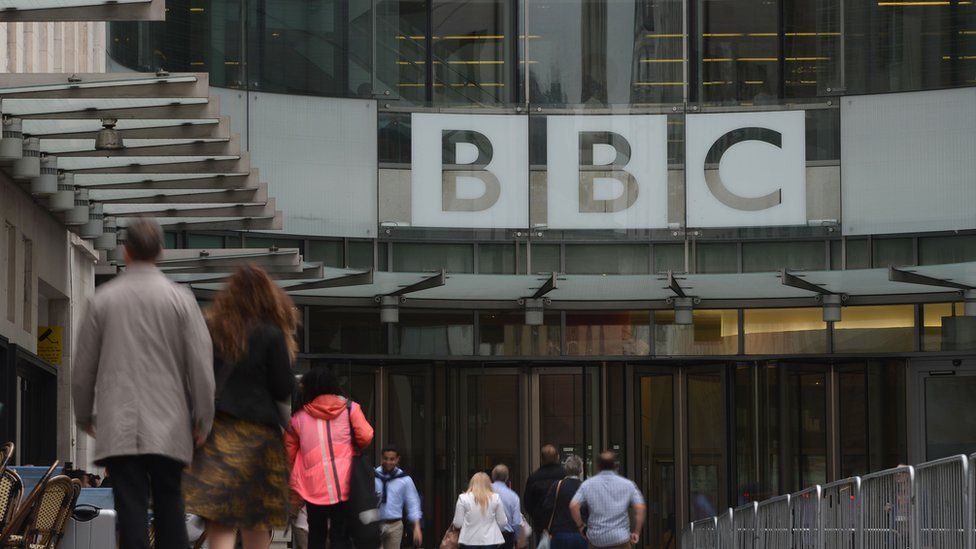BBC managers on £150,000 salaries rises despite pledge
- Published

The number of senior BBC managers paid more than £150,000 has risen, despite assurances the figure would fall.
A National Audit Office report said there were 98 people on that salary level last year, up from 89 in 2012.
The BBC said reductions in the overall number of senior managers mean some staff now have more responsibilities, which has been reflected in their pay.
Meanwhile, MPs have criticised the BBC and Capita, the firm it hired, for not doing more to cut licence fee evasion.
The NAO said the BBC had reduced the cost of its payroll by 6% in real terms and its senior management pay bill by £17.1m.
The number of senior managers dropped from 540 to 319 between 2012 and 2016.
But a target to reduce the number earning more than £150,000 by 20% has been missed.
While the corporation also missed out on a target to reduce the proportion of senior bosses to 1% of the workforce by 0.6%, it expects a reorganisation will address that within the next few months.
£291m loss
The report from the Public Accounts Committee on the licence fee criticised contractor Capita for its "poor" performance.
The evasion rate currently stands between 6.2% and 7.2% and has not reduced to target levels, the committee's report said.
About three million enforcement visits took place in 2015-16, but 18% fewer evaders were caught.
MPs said collectors often find homes empty as more than half of visits take place during working hours.
They noted the BBC has increased licence fee revenue every year since 2010-11, to £3.74bn in 2015-16, and has reduced the costs of collection by 25% in real terms.
But it suggested up to £291m a year was still being lost because of people not paying the licence fee, which is currently £147 a year.
Payroll costs
MPs also said they were "concerned" about reports some Capita staff some had targeted vulnerable residents in collecting the licence fee, spurred on by an aggressive incentive scheme.
Capita is expected to report its findings on the claims to BBC director general Lord Hall in the next few weeks.
Responding to the NAO findings, BBC deputy director general Anne Bulford said: "The NAO report acknowledges the BBC's approach to managing our workforce is securing better value for money meaning we are better placed to face the challenges ahead.
"We are pleased that the NAO has also recognised the steps taken to simplify the BBC; to increase the diversity of our workforce, and to reduce payroll costs by six per cent in real terms including almost halving the number of senior managers."
On the licence fee report, a BBC spokesman said the fall in costs of collection had resulted in increased revenue for programmes and services.
He added: "There has always been a small minority who refuse to pay the licence fee, so we'll continue to use the full range of enforcement methods and encourage people to buy a licence at every stage, as well as considering any further improvements which can be made."
- Published27 February 2017
- Published15 September 2016
- Published2 August 2016
- Published25 April 2013